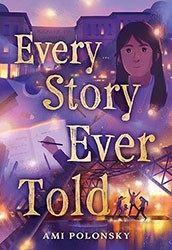In the 1960s, the head of a NYC Child Development Center and a psychiatrist from Columbia University tracked the development of twins and triplets relinquished for adoption and deliberately given to different families. The adoptive parents were never told they were raising one twin — the investigators insisted that the separation be kept secret. Segal reveals the inside stories of the agency that separated the twins, and the psychiatrists who observed them. This study was hardly known until the release of two recent films, Three Identical Strangers and The Twinning Reaction, that left viewers shocked, angered, saddened, and wanting to know more. Through records, letters, and interviews with the colleagues, friends, and family members of the agency’s consultant and study’s investigators, as well as journalists, ethicists, attorneys, and — most importantly — the twins and their families, Segal tells disturbing truth about the study. The spellbinding stories of the twins’ separation, loss, and reunion offer readers details that, until now, have been lost to the archives of history.

Nonfiction
Deliberately Divided: Inside the Controversial Study of Twins and Triplets Adopted Apart
September 1, 2021
Discussion Questions
Courtesy of Nancy Segal
- Was it right or wrong to keep the twinship hidden from the families?
- Would parenting be compromised if the parents knew their child was a twin?
- What is the best way to raise twins?
- How could such a reputable Jewish adoption agency engage in the questionable practice of separating twins given up for adoption?
- How is it that prominent, respected professionals engage in questionable research?
- Would you go along with a mentor who wanted you to do research you felt was not right?
- Was it correct to seal the records until 2065 at Yale University?
- Was it correct to seal the records until 2021 at Columbia University?
- Who owns data gathered unethically from research participants who are still living?
- How can we compensate twins for their “stolen twinship?”
- What are the responsibilities of researchers to their participants?
- What defines a person’s research legacy — the good work he or she accomplished or the unfavorable acts he or she committed? Can we reach a balance between them?

Jewish literature inspires, enriches, and educates the community.
Help support the Jewish Book Council.



